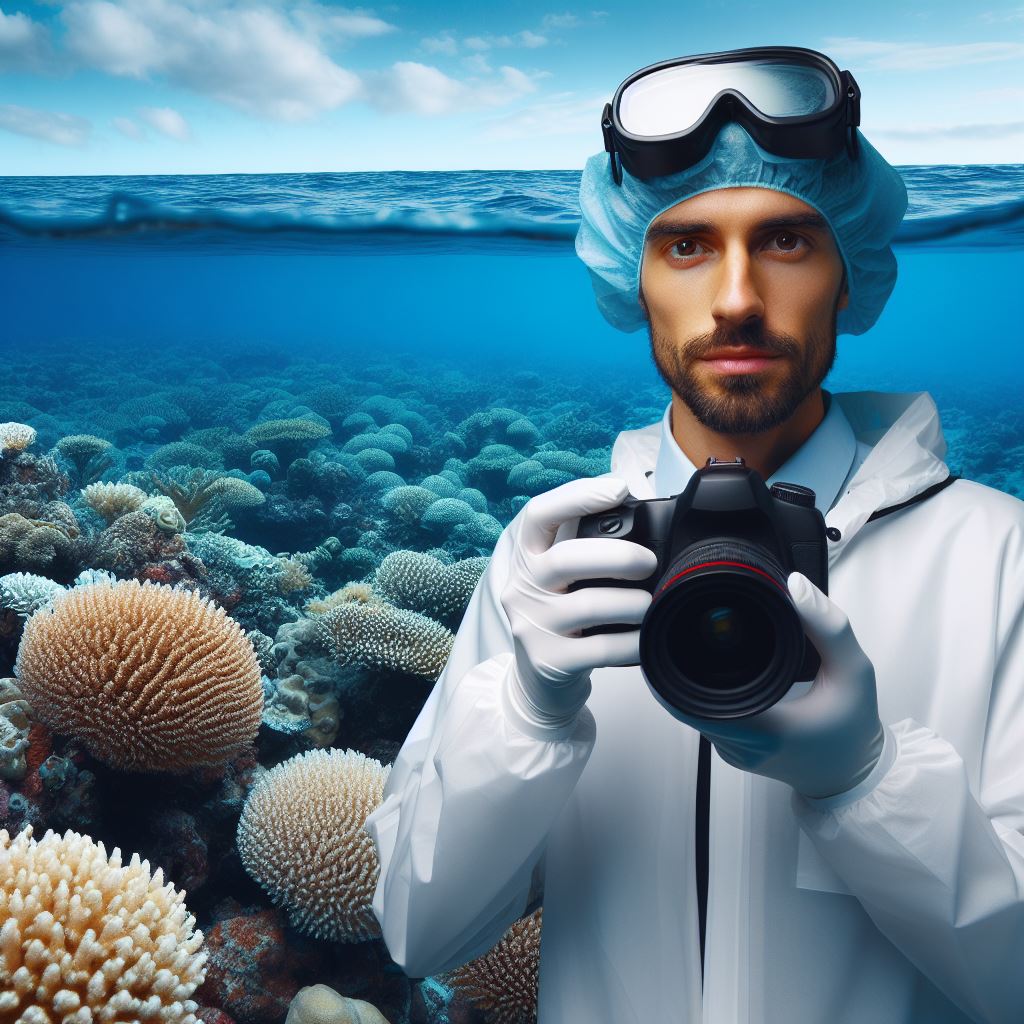Introduction
In the field of eco-science, aspiring Australian scientists must possess key skills to succeed in their careers.
These skills are crucial for pursuing a meaningful and impactful career in eco-science.
The importance of these skills cannot be overstated as they enable eco-scientists to effectively address the pressing environmental challenges of today and contribute to the conservation and sustainability of Australia’s unique ecosystems.
By acquiring these key skills, aspiring Australian eco-scientists enhance their ability to conduct research, gather and analyze data, and communicate their findings to a wide range of audiences.
These skills also enable them to collaborate with other professionals and stakeholders, such as policymakers and community members, to develop evidence-based strategies and solutions.
In addition to scientific proficiency, aspiring eco-scientists need to develop strong critical thinking and problem-solving skills.
These abilities allow them to identify complex environmental issues, evaluate various approaches, and propose innovative solutions that balance ecological conservation with socio-economic considerations.
Furthermore, effective communication skills are vital for eco-scientists to convey their research findings and recommendations to diverse audiences, including scientific peers, policymakers, funding agencies, and the general public.
Strong communication skills enable them to raise awareness about environmental issues, advocate for necessary actions, and inspire positive change in individuals and society as a whole.
In review, the key skills for aspiring Australian eco-scientists are fundamental to their success in addressing environmental challenges.
From research and analysis to problem-solving and communication, these skills empower them to lead the way in preserving Australia’s precious ecosystems and fostering a sustainable future.
Strong educational foundation
The need for a solid educational background in eco-science
A strong educational foundation is vital for anyone aspiring to become an eco-scientist. Eco-science involves studying the relationships between organisms and their environment, with a focus on sustainability and conservation.
To pursue a career in this field, individuals need to prioritize obtaining the necessary knowledge and expertise.
Relevant degrees and courses that aspiring eco-scientists should consider
One of the first steps in building a strong educational foundation is obtaining the right degrees and courses.
Aspiring eco-scientists should consider degrees such as Bachelor of Science in Environmental Science, Bachelor of Environmental Management, or Bachelor of Ecology.
These degrees provide a comprehensive understanding of the scientific principles underlying eco-science.
Moreover, individuals should focus on taking specific courses that specialize in areas relevant to eco-science.
Courses such as Environmental Biology, Conservation Ecology, Sustainable Resource Management, and Climate Change are essential in expanding knowledge and skills in this field.
The importance of ongoing learning and staying updated with current research
However, it’s worth noting that eco-science is a rapidly evolving field.
Therefore, ongoing learning is paramount to stay updated with current research and advancements.
Aspiring eco-scientists should actively engage in professional development activities such as attending conferences, workshops, and seminars.
These opportunities allow them to learn from experts, exchange ideas, and gain insights into cutting-edge research.
Additionally, joining professional organizations related to eco-science can be highly beneficial.
Membership in organizations like the Ecological Society of Australia or the Australian Conservation Foundation provides access to academic journals, online resources, and networking opportunities.
These connections can further enhance knowledge and facilitate collaboration with fellow eco-scientists.
Moreover, aspiring eco-scientists should stay updated with the latest research findings through scientific publications and reputable online sources.
Reading academic journals, articles, and blogs written by experts in the field helps individuals broaden their understanding and explore emerging trends and concepts.
Furthermore, gaining practical experience is essential in solidifying the educational foundation.
Students should seek opportunities for internships, research positions, or volunteering in environmental organizations.
This hands-on experience allows individuals to apply their theoretical knowledge, develop practical skills, and establish connections with professionals in the field.
Generally, aspiring eco-scientists must prioritize building a strong educational foundation.
Completing relevant degrees and specialized courses, staying updated with current research, and gaining practical experience are all essential steps.
Continuous learning, active engagement in professional development, and networking with experts are crucial in thriving as an eco-scientist in Australia.
Fieldwork and research skills
The significance of fieldwork in eco-science and its contribution to understanding ecosystems
Fieldwork, a fundamental component of eco-science, holds a profound significance in unraveling the intricate dynamics of ecosystems.
Its multifaceted contributions encompass not only the acquisition of empirical data but also the cultivation of essential skills indispensable for effective scientific inquiry.
At its core, fieldwork serves as a conduit for firsthand exploration and observation, allowing researchers to immerse themselves in the natural environment and gain intimate insights into its complexities.
By venturing into the field, scientists can directly observe ecological processes, species interactions, and environmental changes, thus bridging the gap between theoretical knowledge and practical application.
The skills needed to plan and conduct fieldwork effectively
Moreover, the planning and execution of fieldwork necessitate a diverse array of skills, ranging from logistical prowess to analytical acumen.
Effective planning entails meticulous attention to detail, strategic foresight, and the ability to adapt to unforeseen challenges encountered in the field.
From selecting appropriate study sites to coordinating equipment and resources, careful planning lays the foundation for successful field investigations.
skills such as data collection, observation, analysis, and interpretation
In addition to logistical considerations, fieldwork demands proficiency in various methodological techniques essential for data collection and analysis.
Mastery of sampling methods, instrumentation, and measurement protocols is imperative for ensuring the accuracy and reliability of collected data.
Furthermore, keen observational skills enable researchers to discern subtle patterns, behaviors, and ecological interactions that shape ecosystem dynamics.
Furthermore, the ability to analyze and interpret collected data lies at the heart of scientific inquiry, transforming raw observations into meaningful insights and empirical evidence.
Proficiency in statistical analysis techniques empowers researchers to discern trends, correlations, and causative relationships within ecological data sets, thereby advancing our understanding of complex ecological phenomena.
In essence, fieldwork not only enriches our scientific understanding of ecosystems but also fosters the development of a diverse skill set crucial for success in eco-science research.
By immersing themselves in the natural world, scientists not only uncover hidden truths about the environment but also cultivate the resilience, adaptability, and ingenuity necessary to address pressing environmental challenges and pave the way for a more sustainable future.
Read: Top Aussie Universities for Lab Techs
Data analysis and statistical skills
When it comes to eco-science research, data analysis plays a crucial role in drawing meaningful conclusions and making informed decisions. The ability to analyze and interpret data accurately is a key skill for aspiring Australian eco-scientists.
Let’s explore the importance of data analysis in this field and the types of data commonly encountered.
Importance of data analysis in eco-science research
Data analysis is essential for eco-scientists as it helps in understanding the impact of human activities on the environment and devising sustainable solutions.
By analyzing data, researchers can identify patterns, trends, and correlations, providing valuable insights into ecological processes.
Moreover, data analysis helps in assessing the effectiveness of conservation efforts and monitoring ecosystem health.
It allows scientists to evaluate the success of interventions and make evidence-based recommendations for environmental management.
Types of data commonly encountered
Eco-scientists encounter various types of data during their research, including:
- Field observations: These involve collecting data on species abundance, behavior, and habitat characteristics.
- Environmental measurements: This includes data on temperature, water quality, air pollution, and other physical and chemical parameters.
- Remote sensing data: Satellites and aerial imagery provide information on land cover, vegetation health, and changes in the landscape.
- Data from citizen science projects: Researchers often collaborate with the public to collect data on wildlife sightings, migrations, and other ecological phenomena.
Statistical skills required for analyzing and interpreting data accurately
To make sense of the data they collect, eco-scientists must possess a range of statistical skills, including:
- Hypothesis testing: This involves formulating research questions, designing experiments, and using statistical tests to determine if there is a significant relationship between variables.
- Data visualization: Creating graphs, charts, and maps helps in understanding patterns and trends in the data, making it easier to communicate findings.
- Regression analysis: This statistical technique helps in modeling relationships between variables and predicting outcomes based on observed data.
- Sampling techniques: Eco-scientists must be proficient in selecting representative samples from large datasets to ensure the accuracy and reliability of their findings.
Use of software and tools for data analysis
In the digital age, eco-scientists have access to a wide range of software and tools that facilitate data analysis. Some commonly used tools include:
Your Personalized Career Strategy
Unlock your potential with tailored career consulting. Get clear, actionable steps designed for your success. Start now!
Get Started- R: A programming language widely used for statistical analysis and data visualization.
- Python: Another programming language with libraries specifically designed for data manipulation and analysis.
- GIS software: Geographic Information Systems (GIS) software allows researchers to analyze spatial data and create maps.
- Statistical packages: Software such as SPSS, SAS, and Stata provide a comprehensive set of statistical tools for advanced data analysis.
Acquiring proficiency in these software and tools is essential for aspiring eco-scientists, as it enhances their efficiency and enables them to make accurate and effective use of the available data.
To sum up, data analysis and statistical skills are indispensable for aspiring Australian eco-scientists. They play a vital role in understanding ecological processes, evaluating conservation efforts, and advising sustainable environmental management practices.
By mastering data analysis techniques and using appropriate software, eco-scientists can contribute significantly to the preservation and restoration of our fragile ecosystems.
Read: Lab Equipment Skills for Aussie Techs
Communication and collaboration skills
Communication and collaboration skills are essential for aspiring Australian eco-scientists.
The need for effective communication skills to convey scientific findings and collaborate with peers
Effective communication skills are necessary to convey scientific findings and collaborate with peers. Eco-scientists conduct research to address environmental issues and solve complex problems that impact society and the planet.
To achieve sustainable solutions, they must effectively communicate their findings with other scientists and professionals in the field.
Communicating research findings to the general public and policymakers is important for several reasons. First, it helps raise awareness about environmental issues and the need for action.
Many people are not aware of the extent and severity of environmental problems, and through effective communication, eco-scientists can educate and engage the public in finding solutions.
The importance of communicating research findings to the general public and policymakers
Additionally, policymakers play a crucial role in addressing and implementing policies to combat environmental degradation.
By effectively communicating their research findings, eco-scientists can influence policymakers to make informed decisions that promote sustainability and protect the environment.
Include skills such as scientific writing, presenting, and public speaking
Scientific writing is a key skill for eco-scientists.
They must be able to write clear and concise research papers, reports, and proposals to communicate their findings to the scientific community.
Writing skills are essential for conveying complex scientific concepts and data in a way that is accessible to fellow scientists and researchers.
Presenting research findings is another critical skill for eco-scientists.
They often participate in conferences, seminars, and workshops where they share their work with other professionals in the field.
Effective presentation skills help eco-scientists engage and captivate their audience, ensuring that their research is understood and valued.
Public speaking is also important for eco-scientists when they communicate with non-experts, such as the general public or policymakers.
Being able to convey scientific information in a clear and engaging manner helps build trust and credibility, increasing the likelihood of positive action being taken to address environmental issues.
The ability to work well in interdisciplinary teams
Furthermore, eco-scientists need to work well in interdisciplinary teams. Environmental challenges are complex and require collaboration between scientists with diverse backgrounds, including biologists, chemists, geologists, economists, and social scientists.
The ability to work effectively in a multidisciplinary team is crucial for generating innovative solutions and integrating different perspectives.
In fact, communication and collaboration skills are vital for aspiring Australian eco-scientists. Effective communication ensures that scientific findings are conveyed to both peers and the general public, facilitating collaboration and action.
Skills such as scientific writing, presenting, public speaking, and interdisciplinary collaboration are essential for success in this field.
Read: Innovations in Lab Technology in Oz

Learn More: Women in Physics: Rising Stars in Australia
Problem-solving and Critical Thinking Skills for Aspiring Australian Eco-Scientists
In the world of eco-science, problem-solving and critical thinking skills play a vital role. These skills enable researchers and scientists to tackle complex environmental issues effectively.
By identifying and analyzing these issues, eco-scientists can develop innovative and sustainable solutions. Therefore, aspiring Australian eco-scientists must possess a range of key skills.
Problem-solving Skills
- Problem-solving is a fundamental skill needed in the field of eco-science.
- It involves the ability to identify, understand, and define environmental issues.
- An eco-scientist needs to have strong analytical skills to break down complex problems into manageable parts.
- Effective problem-solving requires the application of logical thinking and data-driven approaches.
- Eco-scientists must be able to evaluate potential solutions and select the most viable ones.
Critical Thinking Skills
- Critical thinking is essential for eco-scientists to analyze and evaluate environmental problems.
- It involves questioning assumptions, examining evidence, and approaching issues with an open mind.
- Eco-scientists must be able to assess the credibility and reliability of data and information sources.
- They should be adept at integrating and interpreting complex information to form well-reasoned conclusions.
- Critical thinking skills enable eco-scientists to make informed decisions based on sound scientific principles.
Identifying and Analyzing Complex Environmental Issues
- Eco-scientists should possess the ability to identify and recognize complex environmental challenges.
- They must understand the multi-faceted nature of these issues and their interconnectedness.
- By conducting thorough research and analysis, eco-scientists can uncover the underlying causes of environmental problems.
- They should be skilled at applying scientific methodologies and models to investigate environmental issues.
- Analyzing complex environmental issues helps eco-scientists provide evidence-based recommendations and solutions.
Innovative Thinking, Creativity, and Adaptability
- Innovation and creativity are crucial skills for aspiring Australian eco-scientists.
- They should be able to think outside the box and come up with novel approaches to address environmental challenges.
- Eco-scientists must adapt to changing circumstances, as environmental issues are dynamic and constantly evolving.
- By embracing innovation and adaptability, they can develop sustainable solutions for long-term environmental conservation.
- Creative thinking allows eco-scientists to explore uncharted territories and propose unconventional yet effective solutions.
In summary, aspiring Australian eco-scientists must possess problem-solving and critical thinking skills to excel in their field. These skills enable them to identify, analyze, and provide sustainable solutions to complex environmental issues.
Additionally, innovative thinking, creativity, and adaptability are essential for addressing the ever-changing environmental challenges we face today.
Stand Out with a Resume That Gets Results
Your career is worth more than a generic template. Let us craft a resume and cover letter that showcase your unique strengths and help you secure that dream job.
Get HiredRead: Lab Tech Job Market Trends in Oz
Environmental Policy and Advocacy Knowledge
The need for eco-scientists to understand environmental policies and regulations
In order to be successful as eco-scientists in Australia, it is essential to have a deep understanding of environmental policies and regulations.
Environmental policies serve as guidelines for sustainable practices and conservation efforts. Eco-scientists must be well-versed in these policies to effectively advocate for the protection of the environment.
The importance of advocating for sustainable practices and conservation efforts
Advocating for sustainable practices and conservation efforts is crucial for addressing pressing environmental issues. Eco-scientists have the responsibility to use their knowledge to influence decision-makers and the general public.
Understanding environmental legislation is paramount for eco-scientists. They need to be aware of the laws and regulations that govern environmental protection and conservation in Australia.
Policy-making processes play a pivotal role in shaping the environmental landscape. Eco-scientists must be familiar with these processes to participate and contribute effectively.
Public awareness campaigns are vital for promoting environmental consciousness. Eco-scientists should be knowledgeable about these campaigns to engage and educate the public on sustainability and conservation.
Knowledge of environmental legislation, policy-making processes, and public awareness campaigns
By possessing a thorough knowledge of environmental policies, eco-scientists can actively participate in shaping the future of Australia’s ecological landscape.
Eco-scientists play a crucial role in advocating for sustainable practices and conservation efforts. It is their duty to raise awareness about environmental issues and work towards their resolution.
With an understanding of environmental legislation and policy-making processes, eco-scientists can navigate the complex regulatory framework to drive positive change.
Through public awareness campaigns, eco-scientists can inform and educate the public on the importance of sustainable practices and conservation efforts.
In a nutshell, being well-informed about environmental policies, legislation, policy-making processes, and public awareness campaigns is imperative for aspiring Australian eco-scientists.
These key skills enable them to actively engage in environmental advocacy and contribute to the sustainable development of Australia’s natural resources.
Learn More: Breaking Into Marine Biology in Australia
Transform Your LinkedIn for Maximum Impact
Elevate your professional brand with a LinkedIn profile that attracts recruiters, showcases your expertise, and maximizes opportunities. Stand out in your industry with a profile built for success.
Boost ProfileConclusion
In closing, aspiring Australian eco-scientists must possess a range of key skills to succeed in their field.
These include strong analytical abilities, effective communication skills, and a passion for the environment.
Developing and honing these skills is crucial for their success and impact on the ecosystem.
By having analytical abilities, they can effectively assess and interpret data to make informed decisions.
Communication skills enable them to effectively convey their findings and collaborate with others to address environmental challenges.
The importance of these skills cannot be overstated as they are vital for making meaningful contributions to research and policy-making.
Eco-scientists play a crucial role in preserving and protecting the environment for future generations.
To strengthen these skills, aspiring eco-scientists should actively seek educational and professional opportunities.
They can pursue degrees in relevant fields, engage in research projects, and participate in internships or volunteer work.
It is also important for them to stay updated with the latest developments in eco-science through attending seminars, conferences, and workshops.
This will help them stay informed and adapt to the evolving challenges faced by the environment.
In the end, by developing and honing key skills, aspiring eco-scientists can contribute significantly to addressing environmental issues and creating a sustainable future.
The path to becoming an eco-scientist requires dedication, continuous learning, and a passion for the planet.




